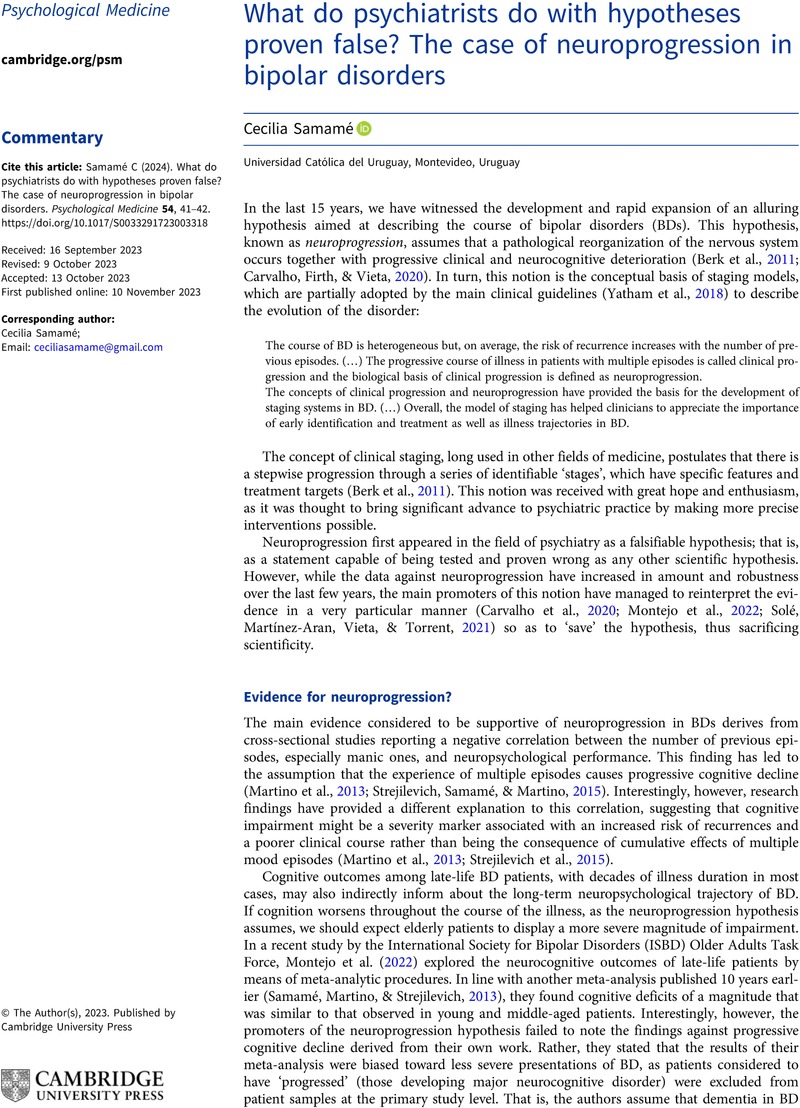Crossref Citations
This article has been cited by the following publications. This list is generated based on data provided by Crossref.
Vieta, Eduard
2024.
Neuroprogression in bipolar disorder: why right is wrong.
Psychological Medicine,
Vol. 54,
Issue. 10,
p.
2344.




